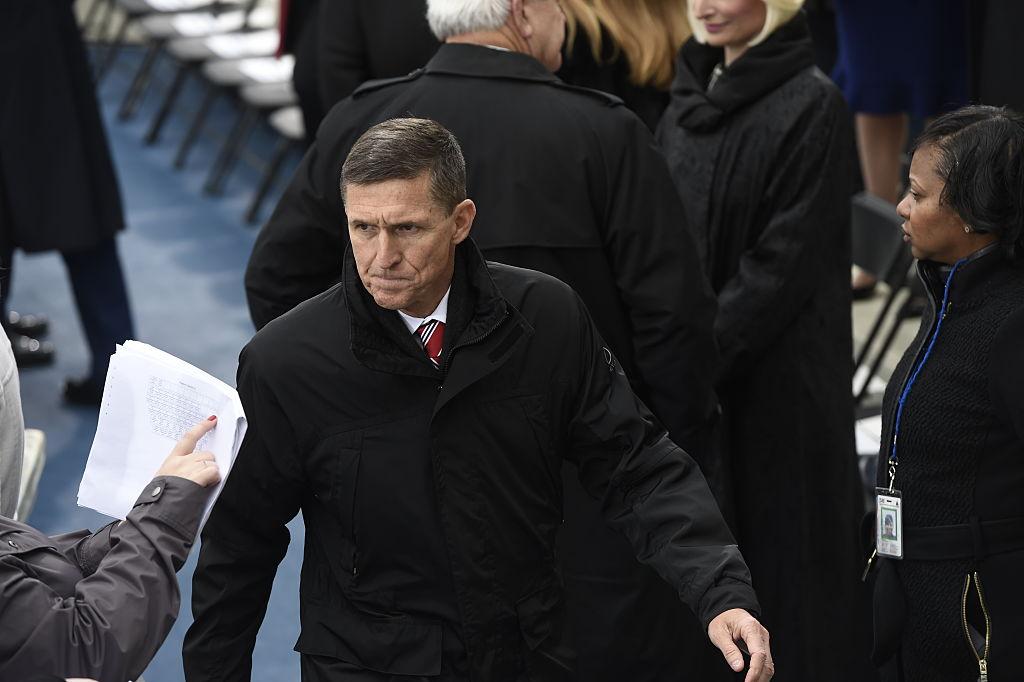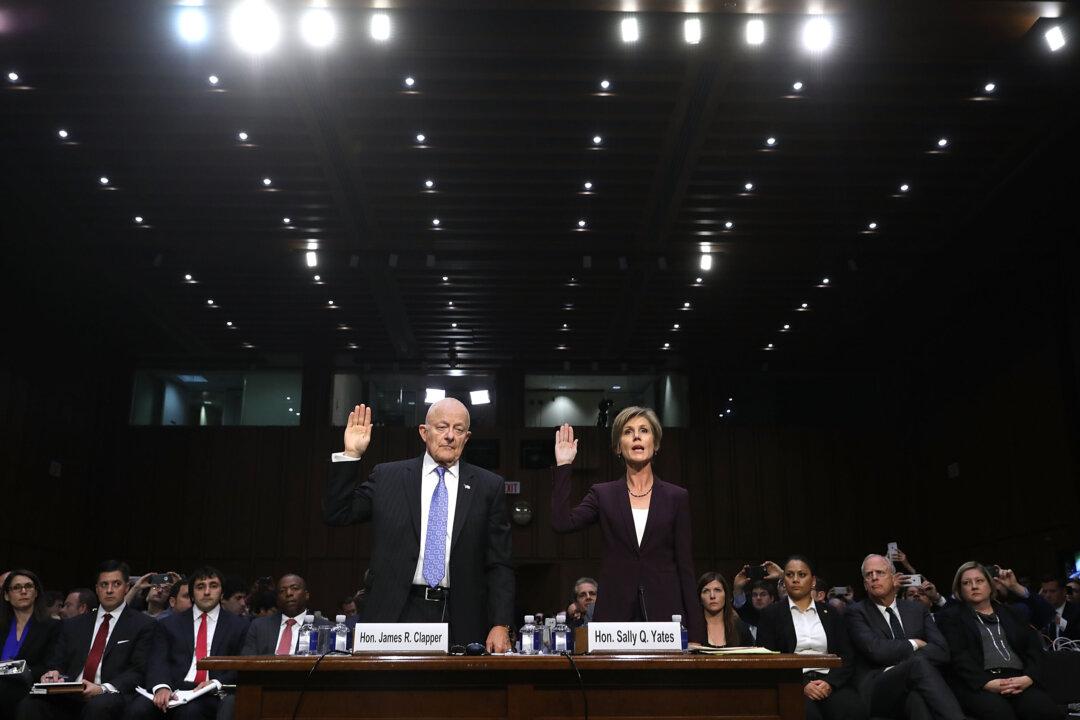Two high-profile officials who served under the Obama administration told a Senate Judiciary subcommittee on May 8 that they had reviewed classified information in which Donald Trump, his associates, or members of Congress had been unmasked.
When an intelligence agency gives transcripts of intercepted communications, it often seals the names of U.S. citizens. When a recipient of an intelligence report requests to have the name revealed, it is referred to as “unmasking.”
The testimonies by Sally Yates, the former acting attorney general, and James Clapper, the former director of national intelligence (DNI), raised the question of whether communications of the Trump team were gathered for legitimate purposes or for political purposes.
Last month, White House lawyers discovered that under President Barack Obama, national security adviser Susan Rice requested unmasking names on dozens of occasions—starting in July 2016 and increasing in frequency after the elections—of members of the Trump team.
The Obama administration tripled its unmasking requests in the election year, jumping from 654 requests in 2015, to 1,934 requests in 2016. The information was included in an April report from the DNI.
At least some of the requests appear to have been related to an investigation ordered by Obama in July 2016 into potential Russian interference in the election and collusion between Russia and the Trump campaign.
During his testimony, Clapper reaffirmed that the investigation by the DNI as well as the CIA, FBI, and NSA did not find any evidence of collusion.
Lt. Gen. Michael Flynn
In her testimony, Yates said that she had warned the Trump administration that former national security adviser Michael Flynn had lied to Vice President Mike Pence about his communications with Russian ambassador Sergey Kislyak. The Trump team confirmed Flynn had lied and fired him on Feb. 13, after he'd spent just 24 days on the job.
During the hearing, Yates declined to answer most questions about unmasking, on the grounds that it’s classified.
However, both Yates and Clapper confirmed that they received classified information in which Trump, his associates, or members of Congress were unmasked.






